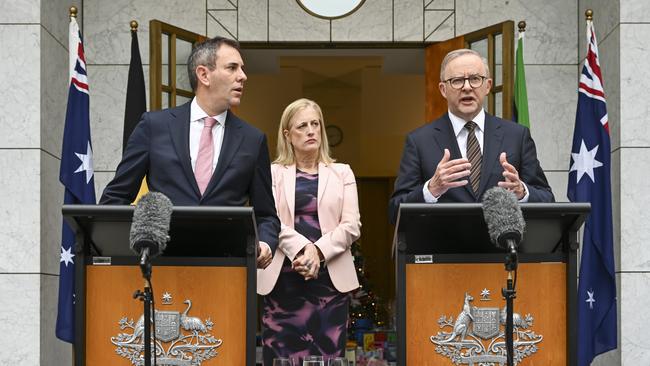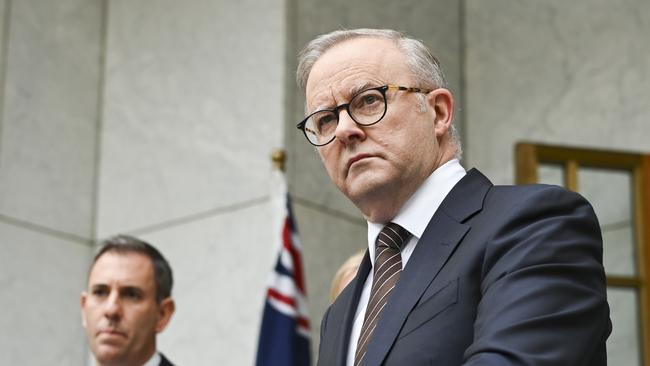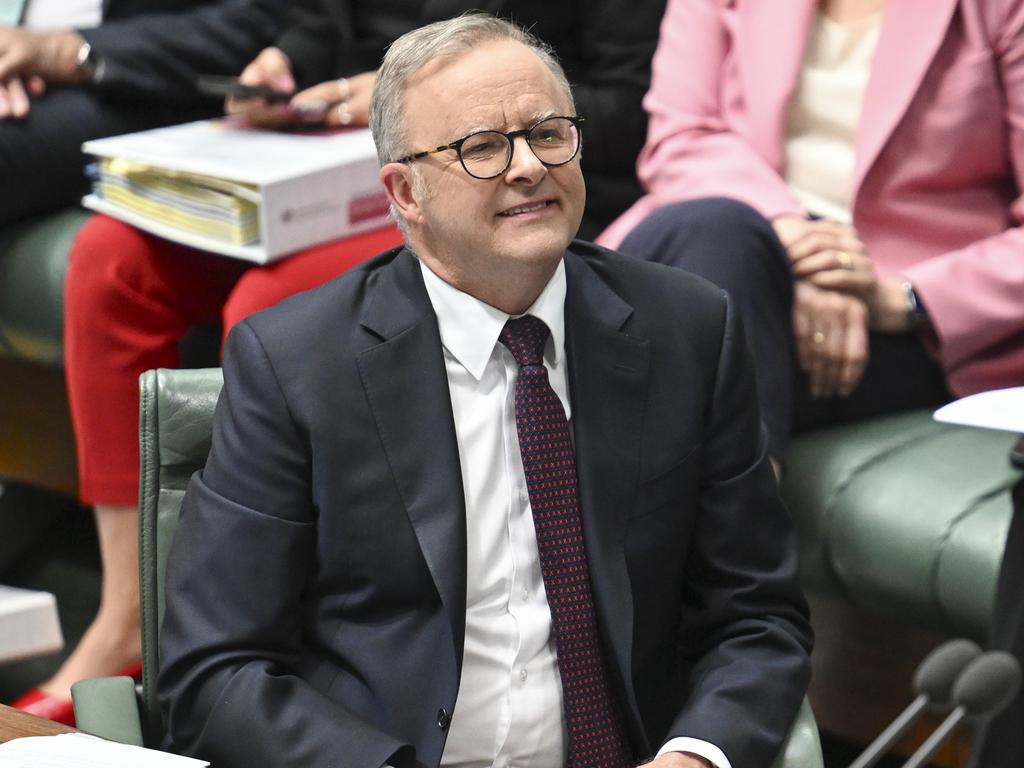Anthony Albanese defends trio of migration bills
Anthony Albanese has defended a trio of controversial migration bills that passed the Senate in a voting blitz in the final sitting week of the year.

Anthony Albanese has defended a trio of controversial migration bills that passed the Senate in a voting blitz in the final sitting week of the year, declaring the visa system needs to be “robust”.
After Labor struck a deal with the Coalition to pass the package of three bills that has been fiercely criticised for being anti-migrant and anti-refugee, the Prime Minister declared that the government supported an “inclusive Australia”.
The bills will empower the government to impose travel bans on countries that don’t accept their own citizens who are sent back against their will, force foreigners to co-operate in their deportation and ban “prohibited items” from immigration detention centres.
One of the bills included provisions to reimpose visa monitoring conditions on detainees freed after the NZYQ High Court decision and empower the government to deport unlawful non-citizens to a third country under a paid arrangement.
In a triumphant pitch to voters on Friday after Labor rammed the bulk of its legislative agenda through the Senate in one night, Mr Albanese dodged questions asking when he planned to strike a deal with another country and if he could guarantee he would negotiate only with signatories of the Refugee Convention.
“We support our multicultural communities each and every day,” Mr Albanese said.
“We are a government that wants an inclusive Australia, that stands up for that. But we understand as well that our migration system needs to be robust and needs to be not manipulated.”
The package was opposed by the Greens and several crossbenchers for being anti-refugee and cruel, and Greens immigration spokesman David Shoebridge accused the government of “surrendering political leadership to Peter Dutton”.

Refugee groups have criticised the legislation for being “Trump-like”, “brutal” and exposing as many as 80,000 non-citizens to the risk of deportation to an unknown third country, without consideration to the risk of breaking up families or sending people to countries with a poor human rights record.
But the Department of Immigration’s former deputy secretary Abul Rizvi said claims the bill would lead to the deportation of thousands of people were “misleading”, arguing the provisions had been drafted too “broadly” and were intended to capture only foreign criminals.
Mr Rizvi said the most likely country Australia would negotiate with was Nauru, but these discussions would take time.
“The bill was politically necessary,” Mr Rizvi said.
“Was it necessary in terms of fixing the big system? No, it won’t make much difference.”
Strategic Analysis Australia director Michael Shoebridge said the policy to send non-citizens to a third country was reminiscent of the British Conservative government’s “disastrous” plan to deport illegal migrants to Rwanda for processing and resettlement.
“It’s got all the hallmarks of the UK Tories’ Rwandan approach, which was an unending public, international and legal disaster,” he said. “Deporting a problem to a third country relies on finding some troubled, needy country that we can bribe to take our problems.”






To join the conversation, please log in. Don't have an account? Register
Join the conversation, you are commenting as Logout